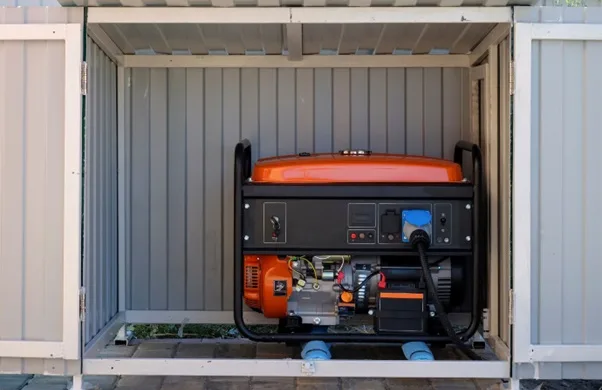In today’s fast-paced business world, continuity is critical to success. Whether you run a small retail shop or a large industrial complex in Ohio, Cleveland, or Akron, a sudden power outage can have far-reaching consequences for your business operations.
This is where a Generac generator comes into play, offering a reliable backup power source. In this article, we will discuss critical aspects of not having a generator in a business establishment, exploring the potential risks and challenges that can arise when the lights go out unexpectedly.Shall we?
The Vulnerability of Business OperationsThe first consequence of the failure of generator installation is the vulnerability of your daily operations. Modern businesses rely heavily on technology, from computers and servers to machinery and communication systems.
When the power grid fails, these essential tools become useless, causing downtime and disrupting productivity. Even if the power only goes out for a few minutes, this can cause significant disruptions to your operations.In some cases, businesses may not be able to resume operations until after the power has been restored—a process that could take several hours or even days, depending on the severity of the outage.
Loss of RevenueOne of the most significant impacts of a power outage is the immediate loss of revenue. With a backup generator, businesses can serve customers, process transactions, and complete critical tasks.
This translates into a direct financial hit. As per the U.S. Department of Energy, businesses lose $150 billion each year due to power outages in the United States alone.The loss can be further compounded if the power outage lasts for an extended period. Businesses will need to consider the cost of lost wages, inventory, and other expenses associated with not being able to operate.
In addition, businesses may also lose customers if they can’t provide a consistent level of service during an outage. This could mean less repeat business or bad press for the company, leading to more losses in revenue over time.
Data Loss and Security Risks
Data is the lifeblood of many businesses today, and a sudden power outage can lead to data loss. Without power to support servers and backup systems, essential data may be corrupted or lost entirely.
As a result, businesses are at risk of suffering significant financial losses or having to comply with regulations such as GDPR. With reliable backup systems in place, it could be possible to recover data lost due to a generator failure.More so, if a generator is not adequately maintained or fails due to security vulnerabilities, the risk of malicious actors accessing sensitive data increases dramatically.
To avoid potentially devastating losses, businesses should always maintain their backup and security systems to ensure they are up-to-date and running correctly. In certain situations, such as in medical organizations or other critical infrastructure sites, a generator failure could have disastrous consequences.For these organizations, it’s vital to ensure that their generators are appropriately serviced and maintained to minimize risk and maintain operations during an outage.

Supply Chain Disruptions
As the world becomes increasingly interconnected, even minor supply chain, disruptions can have costly consequences. Without a reliable source of power, businesses may be at risk for disorder due to parts that are too expensive or difficult to replace quickly.
It’s essential to have a reliable source of power in order to ensure the continuity of operations. A generator can help keep the supply chain running smoothly by ensuring that businesses don’t suffer costly delays due to an unexpected outage.
With more businesses relying on efficient and reliable operations in order to stay competitive, the cost of a generator failure can be significant. A well-maintained generator can help ensure that businesses remain profitable by preventing supply chain disruptions.
Employee Productivity and Morale
When power goes out, employee morale and productivity can take a hit. Dark, unventilated workspaces can be uncomfortable and demoralizing. Employees may also need help accessing essential tools and data required to perform their tasks.
This can result in increased downtime, which can cause businesses to suffer further losses in terms of both productivity and revenue.
Health and Safety Concerns
In some industries, the consequences of a power outage can extend to health and safety concerns. For example, in healthcare facilities, power is critical to life-saving equipment.
In manufacturing, power outages can lead to accidents and injuries due to machinery malfunctions.
Lack of adequate lighting and climate control can also create unsafe working conditions. Businesses need to be aware of the potential health and safety risks associated with generator outages and ensure they have a reliable backup plan in place. Please do so to avoid costly liabilities or, worse yet, tragedy.
Regulatory Compliance Issues
Many businesses are subject to strict regulatory requirements, which often include provisions for backup power sources. In the event of an outage, some companies may be required to provide proof that they have a generator in order to remain compliant.
Defaulting on compliance can result in fines or penalties that can cripple a business’s finances. Therefore, companies need to be aware of their local regulatory requirements and ensure that they are met.

Customer satisfaction and Loyalty
Customers expect reliable service and high-quality products, and an unexpected power outage can cause frustration and disappointment.
Not only can unreliable service lead to a loss of customers, but it can also damage the business’s reputation. Negative reviews and reputation damage can be challenging to recover from, so companies need to ensure that they have a reliable power source in place.
Investing in a generator is integral to maintaining customer loyalty and satisfaction. By having a reliable backup power source, businesses can ensure that they provide their customers the highest possible level of service.
Do You Have Your Generator Yet?
Ensuring that your business has an up-to-date and properly maintained generator is essential for protecting against power outages and their associated costs.
The upfront cost of a generator can be significant, but the long-term savings in terms of lost revenue and customer loyalty will more than makeup for it.
Don’t wait for an outage to happen – invest in your business now by investing in reliable backup power.

